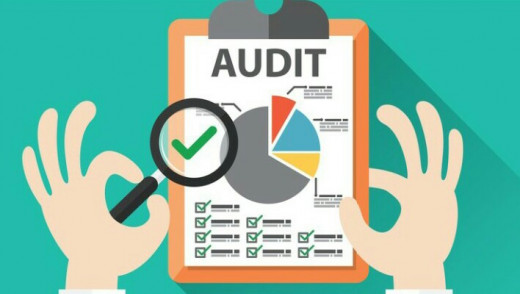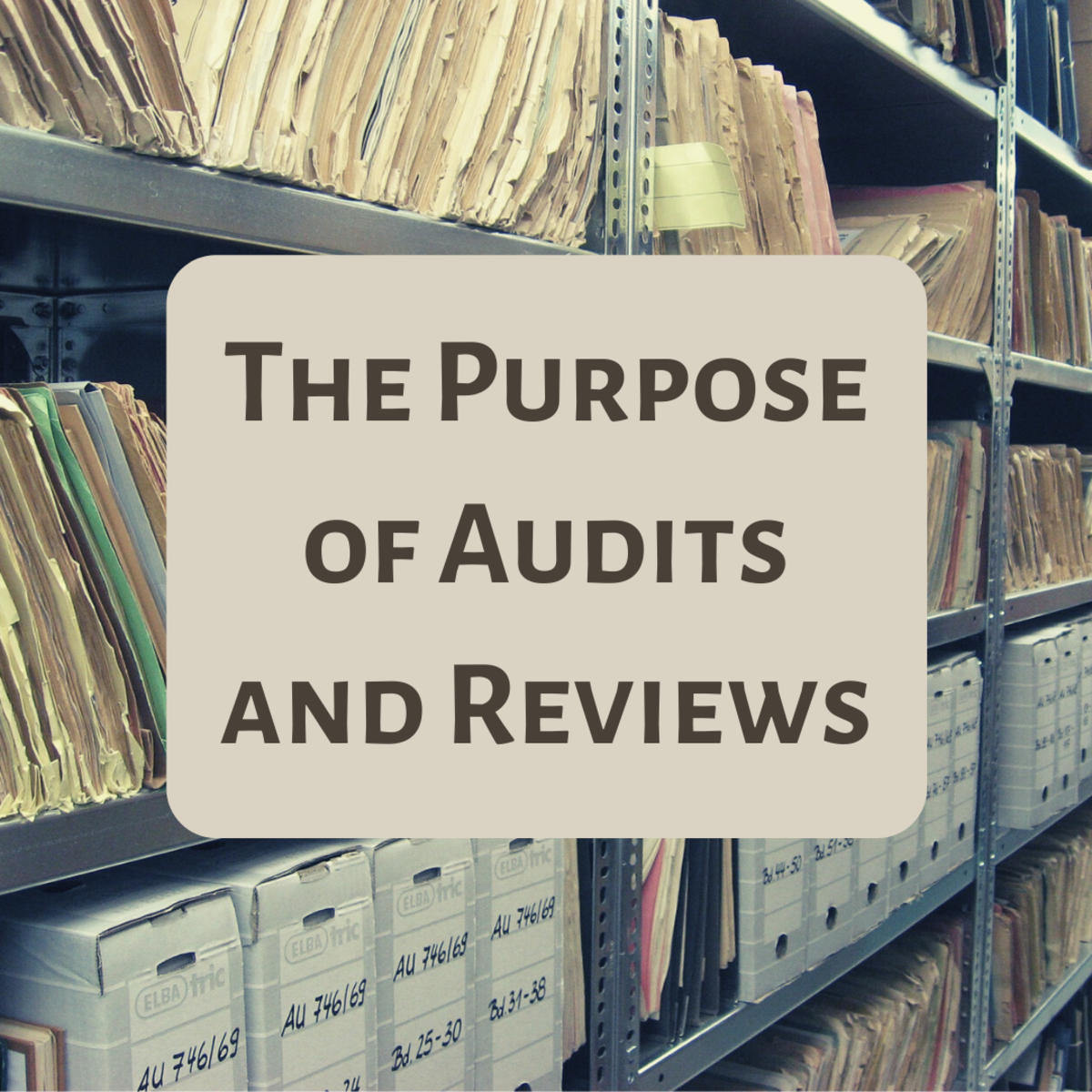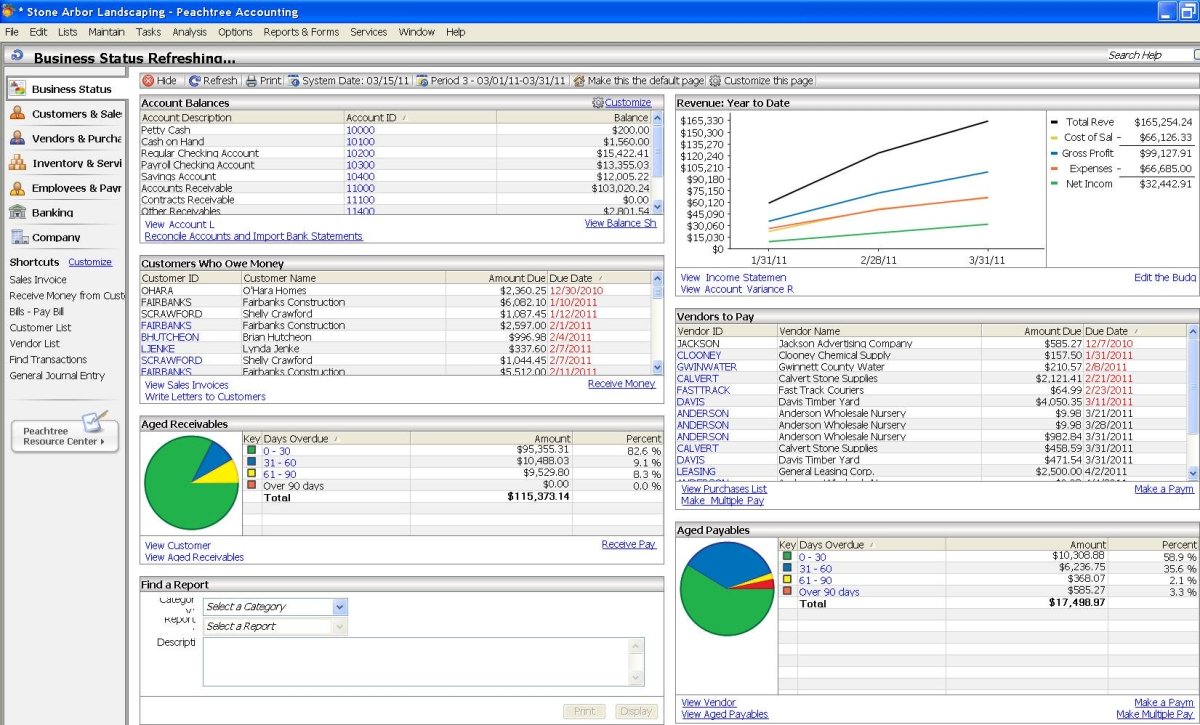Audit of Companies

Audit is an independent examination of financial statements of the company, to form an opinion that whether the financial statements give a true and fair view or if they are free from material misstatement.
Public companies, as well as, some private companies having paid up capital equal to or more than specified amount as set by the local law, are required by the law to engage an external auditor for the audit of the company, and issue an auditor’s report at the annual general meeting along with financial statements. Companies which are not required by the law, can undertake internal audits of the company, by engaging external auditors or by using company’s internal employees.
Auditor performs different procedures to verify that whether the information provided in financial statements are true or not, they reach a conclusion on validity and correctness of financial statements, and issue an auditor’s report, this report plays a very important role for the shareholders in making the decision for whether to invest in the company or not.
Basis of Conclusion:
While reaching the audit opinion on basis of which the conclusion is given, the auditor evaluates the following:
- Whether he has obtained sufficient, appropriate audit evidence, that financial statements are free from material misstatements, sufficient evidence must be obtained so that auditor can express an opinion.
- Whether financial statements have been prepared in accordance with applicable financial framework or not.
Applicable financial reporting frameworks are the rules and regulations against which financial statements are prepared.
Material misstatements:
Any misstatement is said to be material if it is expected to influence the economic decisions of users of financial statements, made on the basis of financial statements.
Material misstatements may arise from the following reasons:
- Non appropriateness of selected accounting policies, policies might not be in accordance with applicable financial reporting framework.
- Non application of selected accounting policies, method of application might be wrong.
- Required disclosures in the financial statements may not be appropriately provided.
Examples of misstatement can be, overstatement of sales, understatement of purchases and expenses, using wrong inventory count method etc.
Sufficient Audit Evidence:
Auditor might not be able to obtain sufficient appropriate audit evidence because of following reasons:
- Circumstances beyond the control of entity, examples of which are, entity’s accounting records being destroyed, records being seized be government authorities etc.
- Circumstances beyond the control of auditor, examples of which are, timing of auditors appointment is such that he is unable to obtain sufficient evidence etc.
- Limitations imposed by the management, for example, preventing auditor to observe inventory count, preventing auditor from requesting external confirmations
Auditor’s Opinion:
Auditor gives two types of opinions after evaluating the above mentioned factors:
- Unmodified opinion
- Modified opinion
Unmodified Opinion:
Unmodified opinion is given when the auditor concludes that, he has obtained sufficient, appropriate audit evidence and the financial statements are giving a true and fair view, and even if there is any misstatement then its effect is not material or pervasive.
Pervasive effect can be said, a more severe effect of misstatement then material effect and which is important for the users of financial statements to know. Usually pervasive effects are not confined to any specific element, account or item in financial statements.
Modified opinion:
Modified opinion is given by the auditor when, he concludes that he has not obtained sufficient, appropriate audit evidence or there is material or pervasive misstatement in financial statements.
There are further three types of modified opinion:
- Qualified opinion
- Adverse opinion
- Disclaimer of opinion
Qualified Opinion:
In simple words auditor shall express a qualified opinion when, he finds any material but not pervasive misstatement or is unable to obtain sufficient, appropriate audit evidence which might have material but not pervasive effect.
Adverse Opinion:
Adverse opinion can simply be explained as opinion, in which auditor concludes that financial statements are not giving a true and fair view, because of any material as well as pervasive misstatement.
Disclaimer of Opinion:
This opinion is given by the auditor, when is unable to obtain sufficient, appropriate audit evidence, so that he could express an opinion on the basis of the evidence.
The possible effect of insufficient evidence is material, as well as, pervasive.
Reasonable VS. Absolute Assurance:
Whatever conclusion the auditor reaches, he does not gives absolute assurance, rather he gives reasonable assurance regarding the conclusion. This is because of the following reasons:
- Audit is done on sample basis, this means that there is no guarantee that the sample not chosen by the auditor is absolutely correct.
- Auditors work is permeated by judgment,
- Audit evidence is persuasive, rather than being conclusive.
For the management of the entity the best opinion by the auditor is unmodified opinion, then there comes qualified opinion and the worst opinions are adverse opinion and disclaimer of opinion.
When the auditor expects to modify the opinion in the auditor’s report, the auditor shall communicate with those charged with governance of the entity the circumstances that led to expected modification, they are given a chance to correct their financial statements otherwise modified opinion will be given.
It is important to know the fact that, auditor’s work is to evaluate that whether the financial statements are giving a true and fair view of the financial performance and position of the entity, auditor’s work is not to evaluate that whether there has been good performance or bad by the entity. Even if there has been a bad performance by the entity, but all the required information is truly presented in the financial statements by the management, then also unmodified opinion will be given by the auditor.






